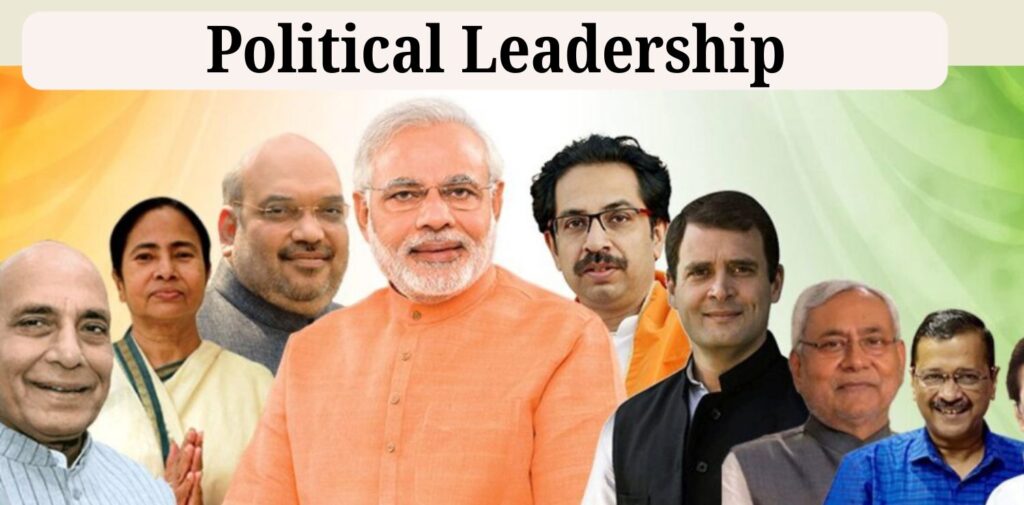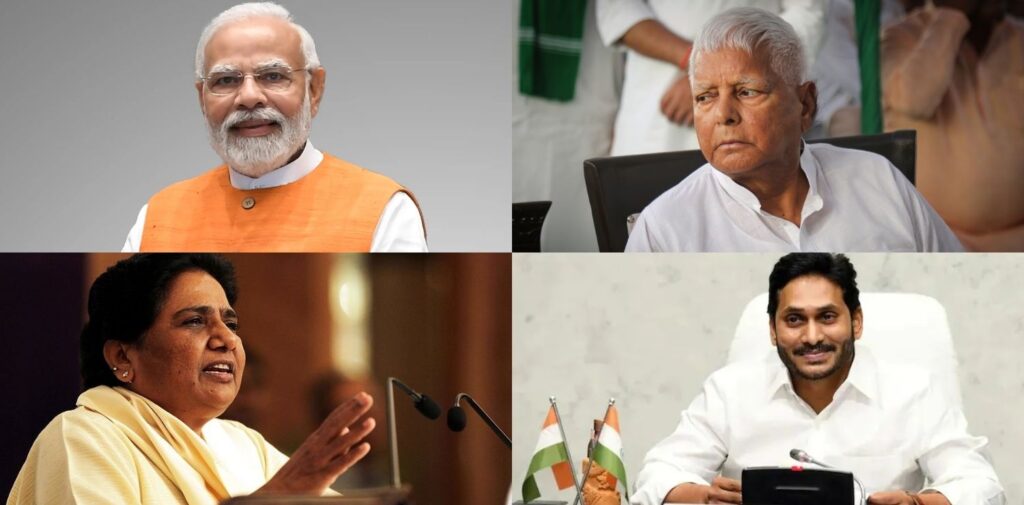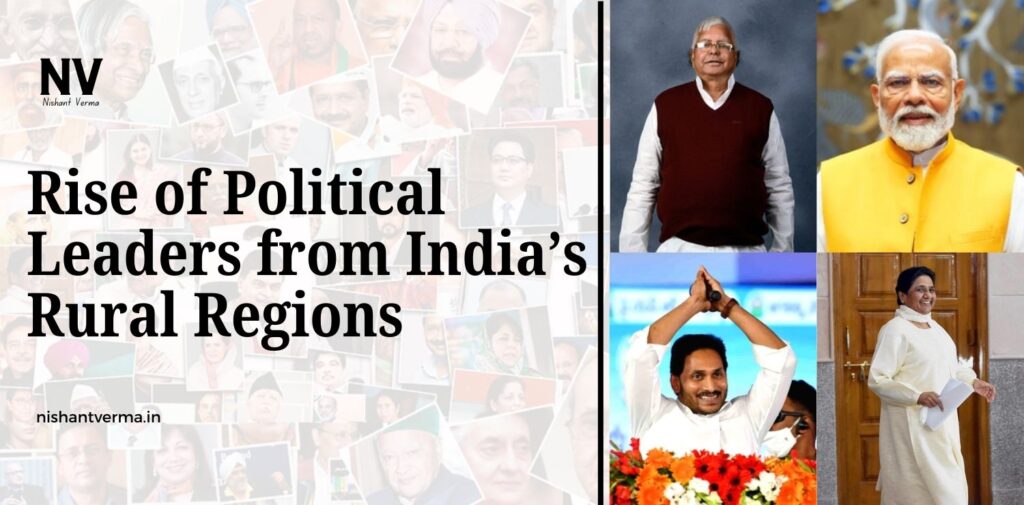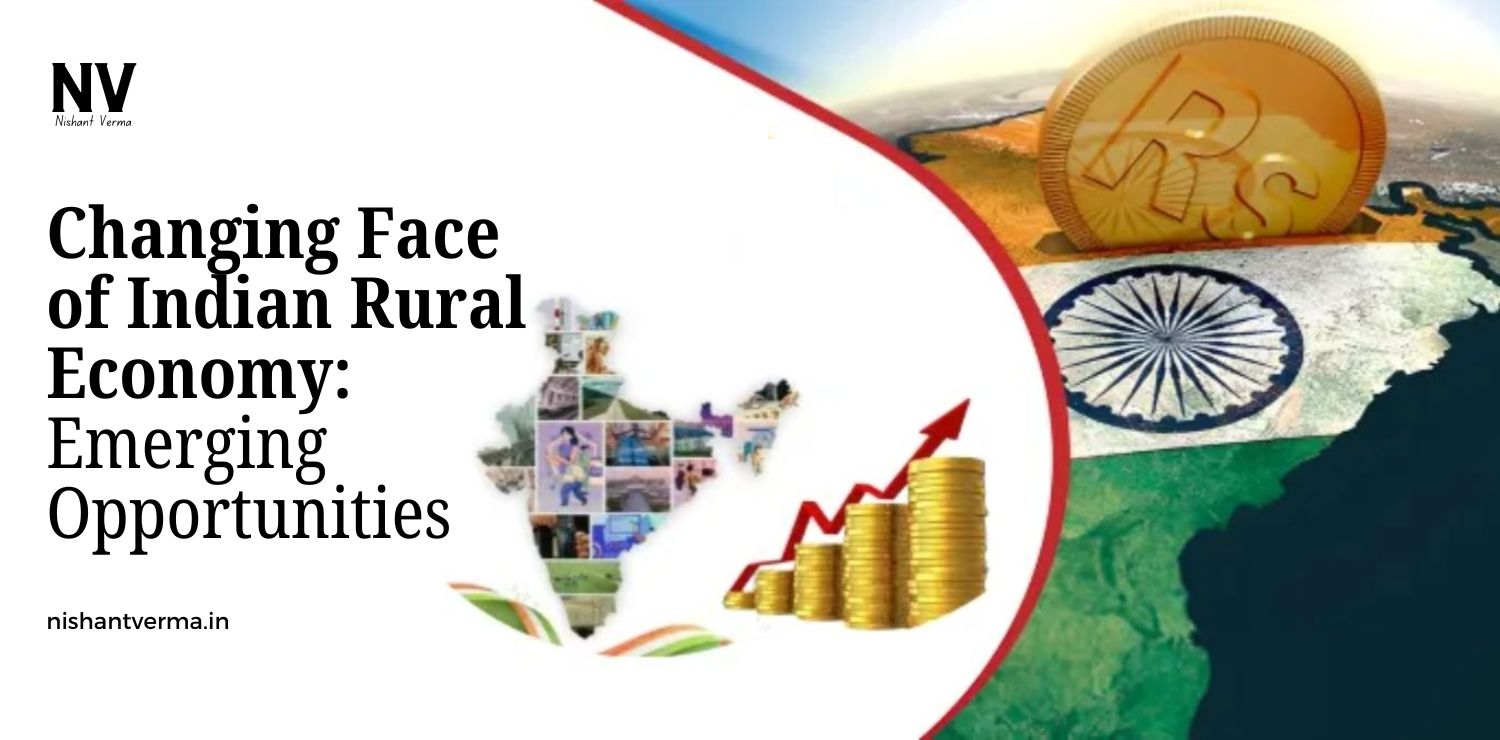India is a country where politics has always been a crucial part of its growth and development. While big cities like Delhi, Mumbai, and Kolkata have been home to many of the country’s political leaders, there has been a significant rise in political figures emerging from India’s rural regions. These leaders are transforming the political landscape and bringing a new wave of leadership, which is gaining attention for several reasons. In this article, we will explore the rise of these leaders, their impact on politics, and how they have shaped the nation’s future.
Changing Face of Political Leadership
In the past, political leaders were often seen as coming from urban backgrounds, with access to better education, resources, and a wider platform for influence. However, over time, we’ve seen a shift. Today, many influential political figures are emerging from rural areas, breaking away from the traditional mold of political leadership. These leaders bring with them a deep understanding of the challenges faced by rural communities, and they work towards solutions that address the unique needs of their regions.
This shift is important for a country like India, where the majority of the population still resides in rural areas. The rise of rural political leaders has helped in addressing the concerns of these communities in a more direct and meaningful way.

Understanding the Appeal of Rural Leaders
So, why are political leaders from rural areas becoming more prominent? The answer lies in several factors:
- Connection to the Grassroots: Rural leaders often have a direct connection with their communities. They understand the struggles of farmers, the lack of infrastructure, and the challenges in accessing healthcare and education. This connection to the grassroots makes them more relatable and trusted by their constituents. Unlike urban leaders who may be out of touch with rural issues, these leaders speak the same language and share the same cultural background as their people.
- Filling the Political Gap: Historically, rural areas in India were often overlooked by political leaders from urban centers. This created a gap in addressing the specific needs of rural populations. With the rise of rural leaders, this gap is being filled. These leaders work to ensure that their regions receive the attention, resources, and infrastructure they deserve, making them stand out in the political arena.
- Focus on Development: Rural leaders are often focused on the development of their constituencies. They push for policies that improve the lives of farmers, laborers, and rural families. Their leadership is often centered around agricultural reforms, improving irrigation systems, better roads, healthcare, and education. This makes them popular in their regions and helps them build a loyal following.
- Empowering Local Communities: One of the key reasons rural leaders are gaining prominence is their ability to empower local communities. These leaders focus on decentralizing power and ensuring that decisions are made closer to the people. This empowerment gives rural populations a sense of ownership and participation in the political process.

Successful Political Leaders from Rural Backgrounds
India has seen many successful political leaders who have risen from rural areas. These individuals have made significant contributions to Indian politics and have helped bridge the urban-rural divide. Let’s take a look at some notable leaders:
- Narendra Modi (Prime Minister of India): Narendra Modi, one of India’s most well-known political figures, comes from a humble background in Vadnagar, a small town in Gujarat. Modi’s rise to the top is a classic example of how rural roots can shape a political career. He was born into a lower-middle-class family and worked his way up through the ranks of the Rashtriya Swayamsevak Sangh (RSS), a right-wing Hindu nationalist organization. Modi’s success as the Chief Minister of Gujarat and later as the Prime Minister of India is a testament to his understanding of rural issues and his ability to connect with common people.
- Lalu Prasad Yadav (Former Chief Minister of Bihar): Lalu Prasad Yadav, the leader of the Rashtriya Janata Dal (RJD), is another example of a political leader who rose from rural Bihar. Born into a poor family, Lalu Prasad became one of the most influential political figures in Bihar. He gained popularity by advocating for the rights of backward classes and marginalized communities. His focus on social justice and land reforms won him support in rural areas, helping him secure several terms as the Chief Minister of Bihar.
- Mayawati (Former Chief Minister of Uttar Pradesh): Mayawati, the leader of the Bahujan Samaj Party (BSP), is another significant political leader from rural India. Born in a small village in Uttar Pradesh, Mayawati rose to prominence by championing the cause of Dalits (formerly known as untouchables) and other backward classes. She served as the Chief Minister of Uttar Pradesh multiple times and is known for her emphasis on empowering marginalized communities. Mayawati’s success shows that rural leaders can make a difference in the politics of large states.
- Y. S. Jagan Mohan Reddy (Chief Minister of Andhra Pradesh): Jagan Mohan Reddy, the Chief Minister of Andhra Pradesh, hails from a rural background. His rise to political prominence was largely fueled by his deep understanding of the rural issues in the state. He focused on agricultural policies, rural employment, and improving healthcare and education in remote areas. His leadership has made a significant impact on the development of the state, particularly in the rural regions.

The Technology in Rural Political Leadership
In recent years, technology has played an important role in the rise of rural political leaders. The internet, social media, and mobile phones have made it easier for leaders to connect with their supporters and spread their messages. Even in remote areas, people now have access to information that helps them make informed political choices. Rural leaders are leveraging technology to build a stronger presence, engage with voters, and stay connected with their communities.
Social media platforms like Facebook, Twitter, and WhatsApp have allowed rural leaders to reach a wider audience. They can directly communicate with their followers, update them on the latest political developments, and gather feedback from the people they serve. This new form of communication has given rise to a more dynamic and interactive style of political leadership.
Conclusion: Rise of Political Leaders
The rise of political leaders from India’s rural regions is a positive sign of the country’s evolving political landscape. These leaders are changing the way politics works by addressing the issues that matter most to rural populations. By focusing on local concerns, empowering communities, and prioritizing development, they are reshaping India’s political future.
As more leaders from rural areas emerge and gain prominence, the country’s political system is becoming more inclusive and diverse. This shift is vital for India’s growth, as it ensures that the voices of rural populations are heard, and their needs are addressed. Ultimately, the rise of these leaders helps bridge the gap between urban and rural India, making politics more accessible to everyone, regardless of where they live.




